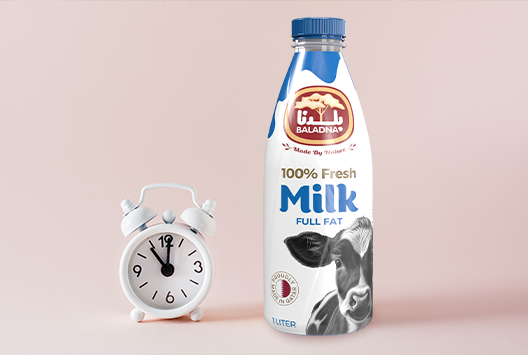
Superfood Spotlight: The Health Benefits of Eating Yoghurt
Similar
Everyone knows food is essential for our health. Without nutritious food, we would not be able to maintain our health and energy levels needed for daily function. For this reason, we are all encouraged to eat healthy food and, as much as possible, avoid unhealthy options such as processed and fast food. Many foods are rich in nutrients, and yoghurt is no exception.
Yoghurt is a product made from milk that has been fermented with lactic acid bacteria. This process gives yoghurt its unique flavor and creamy texture. Additionally, the fermentation process helps increase the nutritional content of yoghurt. It is considered a healthier alternative to other sweet treats, particularly ice cream, and is packed with essential nutrients to keep the body running. However, many people do not know that eating yoghurt as part of a diet goes a long way, so we will discuss some of the benefits below:
The health benefits of yoghurt
Yoghurt is an excellent source of protein, calcium, and vitamins. It is full of essential amino acids and protein building blocks. This makes it an ideal choice for those looking to increase their protein intake. Yoghurt is also high in calcium - which is great for healthy bones and teeth. Many yoghurts are fortified with additional vitamins and minerals, such as vitamin D and B12, which are essential for various bodily functions.
Yoghurt also contains probiotics, which are beneficial bacteria that can help improve digestion. Probiotics can help improve the balance of good bacteria in the gut and are believed to help reduce the risk of certain illnesses, such as inflammatory bowel disease. Additionally, yoghurt can help boost the immune system, as it contains beneficial bacteria and other compounds that can help fight off infections.
Is there a right time for eating yoghurt?
The great thing about yoghurt is that it can be eaten at any time. However, there are certain times that experts recommend consuming yoghurt, such as:
Breakfast: Yoghurt is an excellent breakfast choice as it is a good source of protein, calcium, and probiotics. It can be eaten on its own or topped with fruit and nuts for added flavor and nutrition.
As a dessert after your meal: Yoghurt is a great way to satisfy a sweet tooth without all the calories and fat of regular desserts. Even if you're not a yoghurt fan, you can mix it with fruit, honey, and nuts to create a delicious and healthy after-meal treat.
As a snack: Yoghurt makes for a great snack in between meals. It is an excellent source of protein and calcium and can help keep you full until your next meal.
When traveling: Yoghurt is a great snack to take with you when traveling. It is lightweight and easy to store and can help prevent hunger pangs when you're on the go.
Choosing the right yoghurt
Not all yoghurts are created equal, and when it comes to choosing the right yoghurt for your diet, there are a few things to consider. To help you with this, here are some helpful tips:
1. Know your yoghurt preferences
First, consider your preferences. Do you like plain or flavored yoghurt? Do you prefer Greek or Icelandic yoghurt? Do you want a low-fat or full-fat variant? Your choices matter when picking the right yoghurt, so choose wisely.
2. Choose unsweetened or unflavored yoghurt
Yoghurt is a healthy snack, so choose unsweetened and unflavored varieties. Avoid yoghurts that contain added sugars or artificial sweeteners because these can be unhealthy and add unnecessary calories.
3. Choose a yoghurt with just the right amount of protein
Proteins are essential for muscle growth and repair and help keep you feeling full. Look for yoghurts that contain at least 10 to 15 grams of protein per serving to satisfy your appetite and provide you with essential nutrients.
4. Look for live cultures
Look for yoghurts that contain live cultures, such as Lactobacillus acidophilus and Bifidobacterium. These cultures help break down lactose, a sugar variant found in dairy products. They also help keep your digestive system healthy.
Fuel your body with the creamy goodness of yoghurt
Yoghurt is an excellent choice for those leading a healthy lifestyle, so incorporating it into your diet is recommended. Many yoghurt variants are available, so it is only a matter of finding the one that best suits your taste.
If you are looking for high quality yoghurt, Baladna has what you need! We offer various selections in different flavors as well as other dairy products, such as cheese, milk, and juices, for affordable prices.



